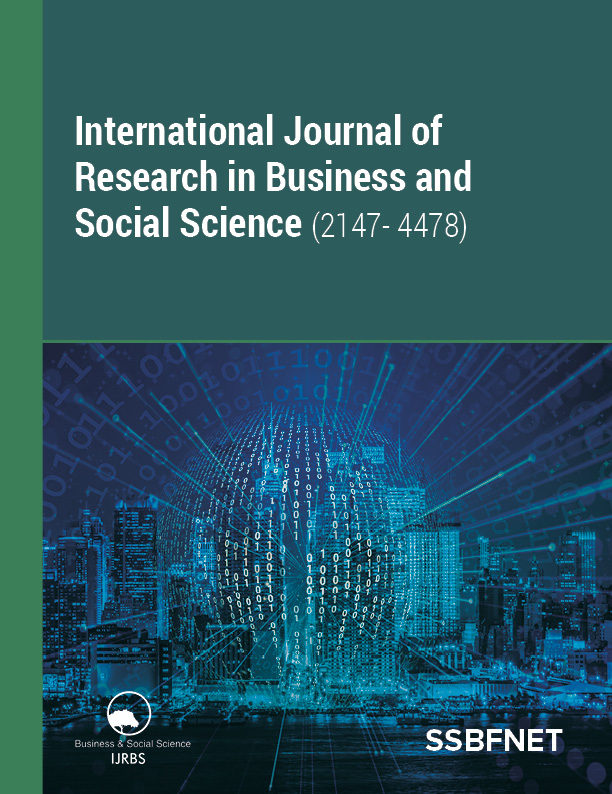
International Journal of Research in Business and Social Science
Yazarlar: John Anthony Waweru, Peter Koome, Alice Wairimu Omondi
Konular:-
Anahtar Kelimeler:Income generating activities,Children charitable institutions,Effective management,Orphans and vulnerable children,Kenya
Özet: This study investigates the influence of income-generating activities on the effective management of charitable children institutions (CCIs) with a particular focus on CCIs in Nakuru Town East Sub County, Kenya. The study was guided by the resource-based theory. The study adopted a mixed-method approach and deployed the descriptive research design to capture data from a target population of 45 respondents comprising of 39 CCI staff (both management and subordinate) and 6 key informants. A complete census was conducted on all the respondents and purposive sampling was utilized to identify key informants. Data from the CCI staff was collected using questionnaires while data from key informants was collected using discussion guides. A pilot study was conducted at Tumaini Bethany and Holy Family children in Nakuru Town West Sub-County to assess the validity and reliability of the instruments. Data were analyzed using the descriptive statistics with the help of the Statistical Package for Social Sciences software (SPSS) and the thematic content analysis technique. The findings from the study showed that income-generating activities had an influence on the effective management of CCIs. The study concluded that effective management of CCIs is shaped by the presence of income-generating activities in CCI, type of income-generating activities, and the amount of income generated by the activity in which the CCI is engaged. The study recommended that CCIs should develop income-generating activities in their institutional plans to mitigate shocks that occur when there is little funding from external partners.